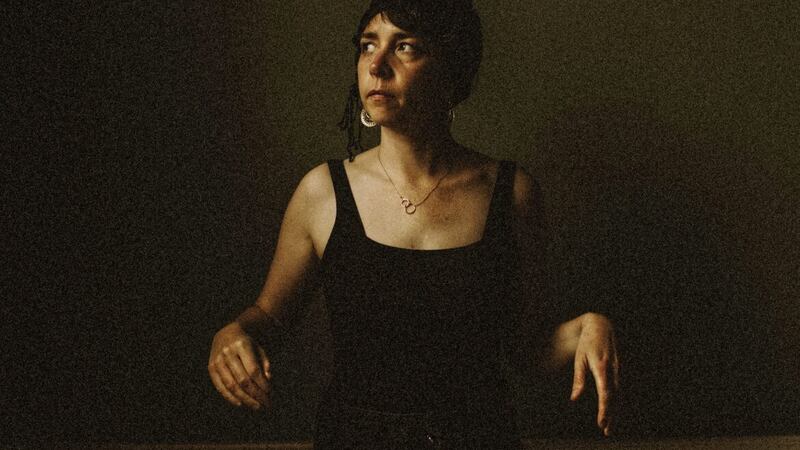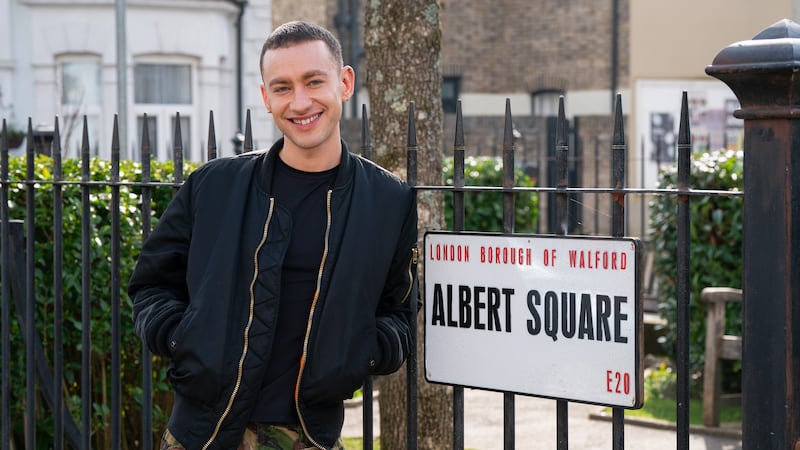IT was just as well that Lisa O'Neill bought a TV, wasn't it? If she hadn't she might not have known what the hell Peaky Blinders was and why people wanted her to perform a song for the last ever episode of the long-running and much loved TV series.
Obviously the makers knew all about the Cavan-born singer, about her devotion to her craft, her searing honesty, her incredible voice and the TLC she gives to her work.
Their confidence was repaid by Lisa's version of Bob Dylan's All the Tired Horses, which would grace any TV screen, concert hall or pub session.
But was she always a Peaky Blinders fan? "I was, but for around 10 years I didn't have a television - not until I moved into this new place - but I actually began to appreciate it during the lockdown," she recalls.
"I found it a great comfort being able to dream off into other worlds and it kind of reminded me of home, growing up watching the telly with Mum and Dad."
The Ballyhaise native says watching Peaky Blinders - the tale of a gangster family in the north of England in the 1900s, starring Cork-born actor Cillian Murphy as the lead character Tommy - "felt like you were stepping into a tunnel".
"It was so well written and the cast were fantastic. The music was so powerful too, so I was absolutely honoured to have any association with it," she says.
The song itself, All the Tired Horses, is quite an enigma, containing just the one line: "All the tired horses in the sun, How am I supposed to get any riding done?"
I ask Lisa what she thinks it means.
"Well, I can only speculate," she replies.
"I think there's power in someone being brave enough to work with a mantra and one line is strong enough to be repeated again and again but in a different way or in a different dimension each time.
"'Tired horses in the sun' could represent so many things.
"I think humanity is tired, the world is tired and I read that Dylan had burnout.
"In the series, a barman says to a character, 'Oh, that's Tommy. He was a happy kid, you know, a wonderful kid. Then he went to war, and now he is dead inside.'
"So the song might be about the Peaky Blinders character and how Dylan was feeling at one point in his career."
The splendiferous I Heard A Long Gone Song album encapsulates who Lisa O'Neill is - the songwriter of immense creative and emotive power, a begetter of works of beauty, a conduit to generations past, an innovator in a traditional world.
So how does this alchemy come about? When she sits down to write her own songs, does she aim to create a thing of beauty, to tell a story, to impart a message, all of those things, or maybe none of those things?
"All of those things, but not consciously each time," she responds.
"I mean, one of those things will be the instigator each time. But all of those things will need to be considered eventually, before we actually share the song.
"So truth is at the centre of it all. And I often find myself writing a song because I'm trying to understand something I'm curious about.
"I've discovered something and it's opening up and I want to know more about it. And before I'm conscious of it, I'm singing it. If I think it's worth sharing, then it's a message I want to pass on.
"The things that I might feel strongly about, I know that they affect other people as well. And it's my job to put them in a way that's accessible and also to stay true to myself.
"I'm not a preacher. I wouldn't ever want to come across like I am."
However, Lisa is also a great interpreter of traditional songs, having recorded old favourites including Come Back Paddy Reilly to Ballyjamesdsuff, Peggy Gordon and the Galway Shawl alongside her own material, but how does she put her own stamp on songs that have been sung since the last century?
She has to be in love with the songs for a start.
"I can only sing songs that really speak to me and it's almost like I am the character in a song. Or I am the songwriter.
"It's like you inhabit the song in some form. It speaks to you and I can go inside a song and it transports me repeatedly. Then it's my job to transport the listener," she explains.
Her albums - including Has an Album (2009), Same Cloth or Not (2013), Pothole in the Sky (2016) and Heard a Long Gone Song (2018) are the opposite of muzak.
They stop you in your tracks and you have to listen, songs that are earthy and ethereal at the same time, without a superfluous note or accompaniment.
It seems to me that there is a move towards more minimalism in trad music, that there is a journey back to "the pure drop", the undistilled version of the tradition. Would Lisa agree?
"I think that the relationship with the pure drop is important and I enjoy a lot of the songs from the tradition, but I'm certainly not a specialist in that area," she says.
"Music needs to stay open so that it doesn't stay stagnant. It needs to be able to come through with the generations as well.
"What's most important is the reason behind your songs. What are the sentiments? Is the message still relevant today? Some of the songs in the tradition are so powerful that they spoke to the people hundreds of years ago and they still speak to the people today," she says.
Lisa herself will be speaking to a Belfast audience next week when she plays the Empire, a gig which will give her the chance to do a little research into her family history.
"Yes, I want to do my homework into my family tree," she tells me.
"Some of my people came from Belfast and there are records of marriages in Belfast, the Brennans, and then they moved on to Clones and then to Cavan, so Belfast is in the bloodline."
:: Lisa O'Neill plays the Belfast Empire Music Hall on Wednesday November 2 at 7.30pm.








